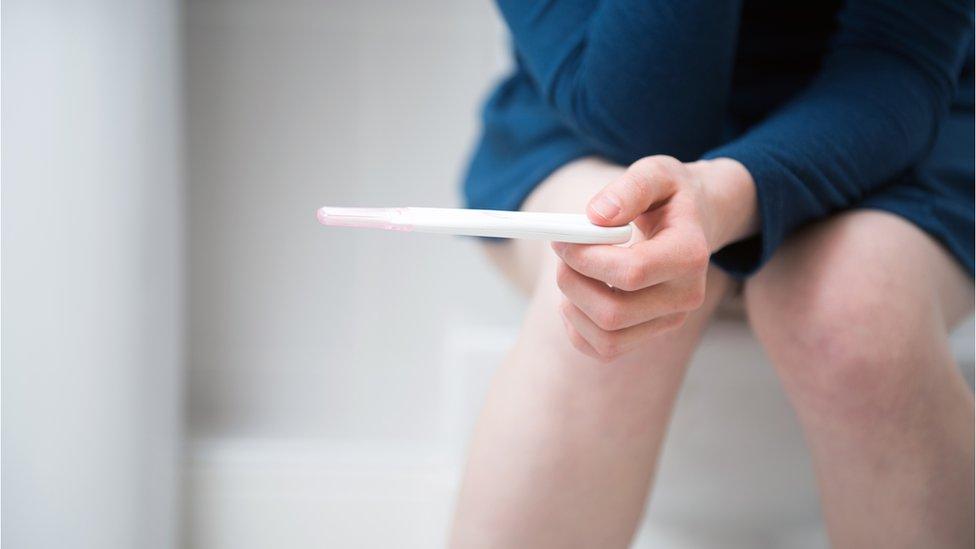NI Assembly: Michelle O'Neill wants executive formed after election
- Published
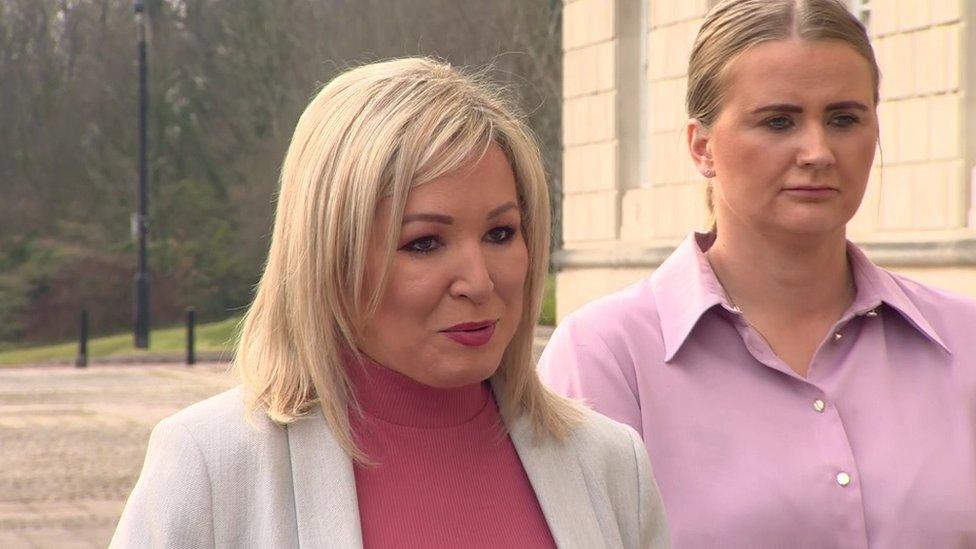
Michelle O'Neill says there is no "other show in town" but power-sharing
Michelle O'Neill has said she will look to other party leaders to form an executive after May's election.
The Sinn Féin deputy president said there was no "other show in town" but power-sharing.
MLAs met at Stormont for the final time on Thursday before the assembly election campaign starts next week.
Six bills faced their final stage of debate, including legislation to tackle period poverty and providing paid leave to victims of domestic abuse.
All of them were passed.
Looking ahead to the May poll, Ms O'Neill said she would be back at Stormont post-election looking to agree a Programme for Government.
"I'll be here on day one, on May 6," Ms O'Neill said.
"I'll be here to do business and we need partners in which to govern. I look towards the other political leaders to form a government directly after this election.
"There isn't any other show in town."
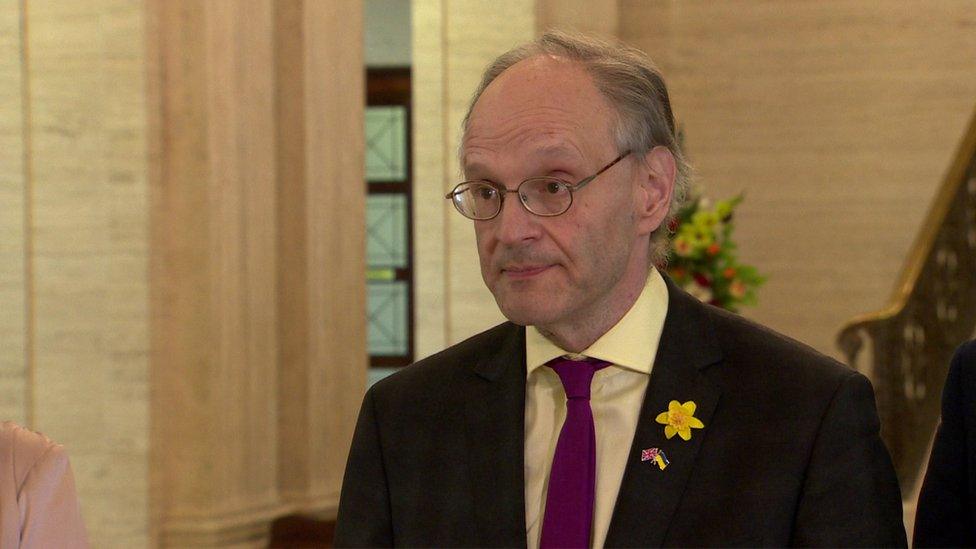
Peter Weir says the upcoming election will be the most important that he has ever fought
Six pieces of legislation were outstanding that needed to be passed by the end of Thursday - and they were passed three hours earlier than expected.
Over the course of the assembly's two-year term, 47 bills have been passed - half of them in the last six weeks.
That compares to 78 bills passed in the previous five-year term.
Democratic Unionist Party (DUP) assembly member (MLA) Peter Weir said the upcoming election was the most important that he had ever fought.
"Obviously for all ministers, there have been limitations because of Covid, but I think there has been a level of delivery," he said.
"We want to see Northern Ireland move forward in a positive, united fashion."


MLAs were due to sit in the chamber until 9pm to get the bills over the line.
But in keeping with their newfound ability to fast-track legislation, they managed to do the business with three hours to spare.
This assembly was born out of a political crisis when Sinn Féin quit the executive - and is now ending in a political crisis with the DUP doing the same thing.
Ministers have managed to steer us through a pandemic, and they've also managed to pass a whole raft of legislation which no doubt will improve the lives of so many people across Northern Ireland.
After the election, much will hinge on the DUP.
Will they share power with Sinn Féin if the party comes out on top, or if there are no changes to the Northern Ireland Protocol?
What we can expect post-election is a period of political paralysis, and maybe even another talks process.

The Abortion Services (Safe Access Zones) Bill - Banning anti-abortion protests outside health clinics and settings in Northern Ireland
The Preservation of Documents Bill - Preserves documents relating to certain institutions and residents of those institutions between 1922 and 1995, and to children of residents
Hospital Parking Charges Bill - Abolishing car parking charges in hospitals in Northern Ireland
The Fair Employment School Teachers Bill - Removes the exception for school teachers from the Fair Employment and Treatment (Northern Ireland) Order 1998
Domestic Abuse (safe leave) Bill - Providing 10 days per year of paid leave to victims of domestic abuse
The Period Products (free provision) Bill - Making period products freely available in public buildings and schools
There was opposition to the Abortion Services Bill, but it passed by 55 votes to 27.
It was also the last day for about 10 of the current crop of assembly members who are not standing for re-election.
Related topics
- Published8 June 2022
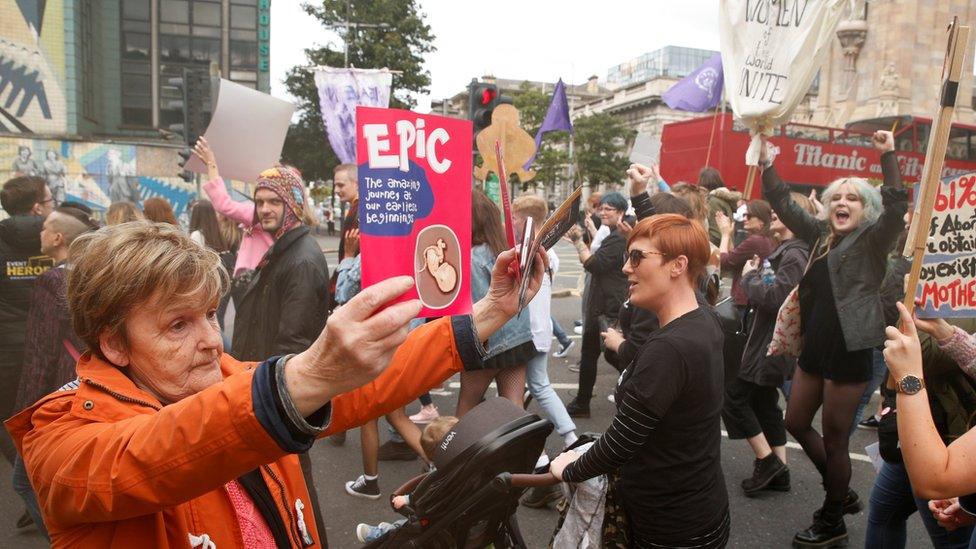
- Published22 July 2021
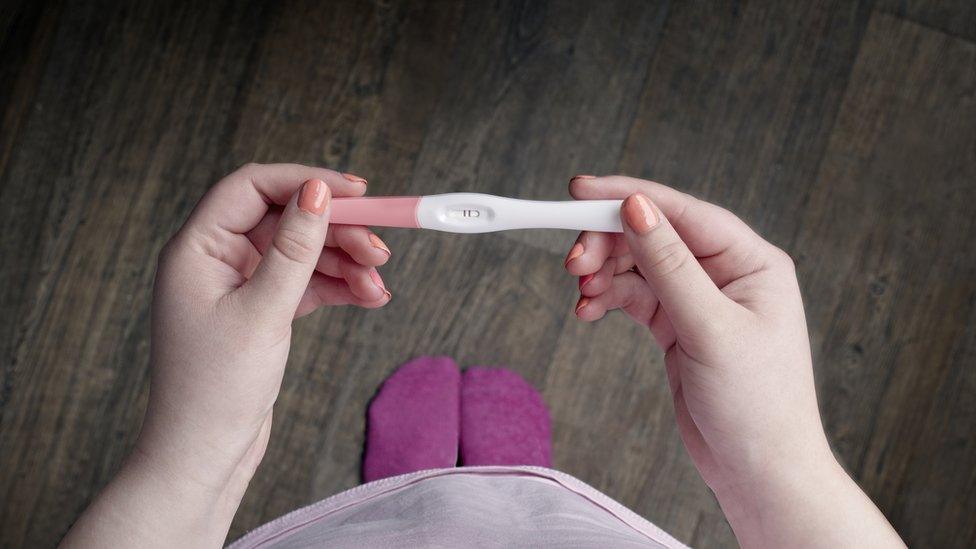
- Published18 March 2021
